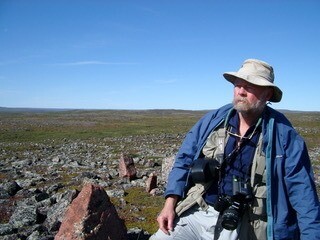#37 Around the Campfire; “Piety, Prudence, Posterity”
December 22, 2011
Perhaps the two topmost organizing dares before the wilderness and wildlife network today are to grow our web of friends among those who are politically middle-of-the-road or even slightly to the right, and among those in small towns and the hinterlands. Too often we think the only field where we can gather new backers is the progressive/liberal one, but clubs such as Republicans for Environmental Protection, Backcountry Hunters and Anglers, and Trout Unlimited strongly show that there are more than a few folks caring about wild things who are not progressives, who may even be conservatives.
Now, when I write conservative I do not mean so-called “movement conservatives,” shills for big business, or Tea Baggers, but the many folks who still have the values of “traditional conservatism,” which more or less lost its seat in the Republican Party in the Reagan years. Indeed, some of the bedrock values for traditional conservatives, but not for today’s highly partisan right-wingers, are also bedrock values for wilderness and wildlife conservation—such as piety, prudence, and posterity.
I think that if we wildlovers would talk more about these values, we would find that we could better reach folks we are not reaching now because they think we are all left-wingers.
Dr. John Bliese, formerly Associate Professor of Communication Studies at Texas Tech University in Lubbock, has done more than anyone since the 1970s to show not only that conservatism and conservation can be like-minded, but also that the intellectual leaders of conservatism from the end of World War Two to the Reagan Revolution, most of all Russell Kirk, Richard M. Weaver, and Clinton Rossiter, were foes of landscalping. In 1953, Kirk wrote The Conservative Mind, likely the foremost conservative work of the last hundred years. In a 1996 article for Modern Age, Bliese writes, “If we go back to the ‘Founding Fathers’ of American traditionalist conservatism, we will find a solid philosophical basis that would lead conservatives to be environmentalists.” Conservatives and conservationists alike should read his book, The Greening Of Conservative America. True conservatism has deep ties to conservation through the following thrusts: Antimaterialism, Piety, Prudence, Posterity, Values, and Responsibility.
I go into all these in my forthcoming book, Take Back Conservation, from which this “Campfire” but I’ll only write here about piety, prudence, and posterity.
Before we look at these principles, however, let’s go to writings by Russell Kirk on conservation and pollution. Most of the work by Kirk (and Weaver) was before widespread heed was given to how we were wounding Earth. Nonetheless, Kirk did not shun the land in his syndicated newspaper column in the 1960s and early 1970s. In 1962, he wrote about pesticides and how they harmed wildlife. He told his readers to read Rachel Carson’s newly released Silent Spring. This is a big deal since Carson’s book led to a bitter wrangle among the directors of the Sierra Club, with some pooh-poohing any harm from pesticides. In your wildest dreams, can you see any leading conservative today telling folks to read a book like Silent Spring?
Bliese writes:
In 1965, [Kirk] deplored the fact that “rare, strange and beautiful animals are shrinking toward extinction in much of the world.” He argued that “preservation of the multitudinous animal species has been enjoined by religion since the dawn of human consciousness,” with specific reference to the story of Noah. He wrote this piece in South Africa’s Kruger National Park, but added that “we Americans have done our despicable share in decimating the animal kingdom.”
Please click on the attachment below to read the entire “Campfire.”
Dave Foreman is the founder of The Rewilding Institute, co-founder of The Wildlands Project and Earth First!, and author of several acclaimed books on wildlands conservation. Books: Rewilding North America | Man Swarm: How Overpopulation Is Killing The WIld World | Take Back Conservation …among several other Rewilding books you can find here. [Photo: Dave Foreman in the barren grounds of Nunavit, Canada © Nancy Morton]


